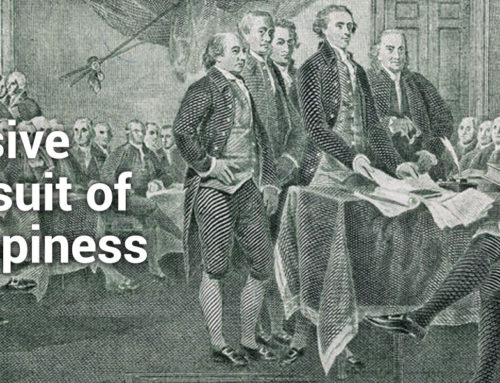In previous blogs (here and here), I have presented a comprehensive model of leadership that I have labeled The Performance Trilogy®. The framework describes the three fundamental processes that must be managed; strategy, execution, and leadership development and the three leadership roles needed for each process; leading, managing and coaching. Leading each of the three processes of the Performance Trilogy® requires very different attributes (i.e. talent and skills). The three most important attributes needed to successfully lead the strategy process are imagination, courage and persuasiveness. The three most important attributes needed to successfully manage the execution process are conscientiousness, productivity and discernment. The three most important attributes needed to successfully coach the leadership development process are integrity, empathy, and teaching skills. These nine attributes are universal and essential for sustainable success in any endeavor you pursue. In this blog we will explore the third of these coaching attributes required during the development process, teaching skills.
Teaching Skills – The ability to foster self-learning in others.
The last attribute of coaching is the ability to teach. Great coaches are great teachers, not in the grade school sense of imparting knowledge but in the professional sense of investing the time to truly understand the talent, motivation and aspirations of highly skilled individuals and providing peer-to-peer feedback. The coach’s role is to increase their subject’s level of awareness and guide them in the process of self-discovery. In my experience, coaches that have these teaching skills and motivation are the exception rather than the rule.
Many leaders make the mistake of assuming that they have nothing to teach to highly intelligent and educated staff. Nothing could be further from the truth. In fact, in my experience, it is just the opposite. Experts become that way by concentrating and focusing on their area of specialty at the expense of many other skills and behaviors that are needed in today’s complex organizational environment. Coaches identify leadership gaps in awareness and behavior to help highly professional staff gain the breadth of skills to complement their tremendous depth in their primary field of endeavor. These could include the nine attributes of leadership I’ve included in the Performance Trilogy® including imagination, courage, communication skills, conscientiousness, organization skills, analytical skills, integrity, empathy, and teaching skills.
First and foremost, good coaches do their homework. They spend time getting to know the strengths, weaknesses, aspirations and motivations of their staff. They understand that an important part of their leadership responsibilities is placing their staff in positions to succeed, challenging them with meaningful assignments and supporting their development and growth. In a new relationship, the better one understands the aspirations of their staff, the more likely they are to guide their assignments and development.
Most all organizations recognize the importance of supervision and coaching and have sophisticated annual performance planning and development programs in place. “Management by objectives” has been proven to be one of the more powerful tools in management theory over the past 30 years when successfully practiced. Unfortunately, poor implementation of this practice has many questioning its effectiveness. Most managers oftentimes dread the annual performance review. However, when properly executed, the performance planning and review process is a highly effective way to balance the need for performance (what can you do for the organization?) with the need for personal accomplishment and growth (what can the organization do for you?). Good coaches facilitate this process with integrity, empathy and dialog. In my next STILE Point, I will further elaborate on 1) coaching to distinguish between coaching for performance and coaching for development, 2) why these two functions should be conducted separately and 3) my suggestions for transforming the role of Human Resources in organizations.
Graffeo and Associates is an organization committed to improving the quality of leadership in science and technology (S&T). It was formed in 2008 around the expertise of Dr. Tony Graffeo, a senior executive from Arthur D. Little and Battelle Memorial Institute. Dr. Graffeo has consulted with leading research institutions in the United States, Europe, Latin America and the Middle East, and has created a codified system of leadership development centered around the principles of the Performance Trilogy® which he has taught throughout the world. He is currently a professor at Northeastern University teaching Professional Masters entrepreneurship and leadership courses. His new book, titled “Leading Science & Technology-Based Organizations: Mastering the Fundamentals of Personal, Managerial, and Executive Leadership” will be published in 2018.



